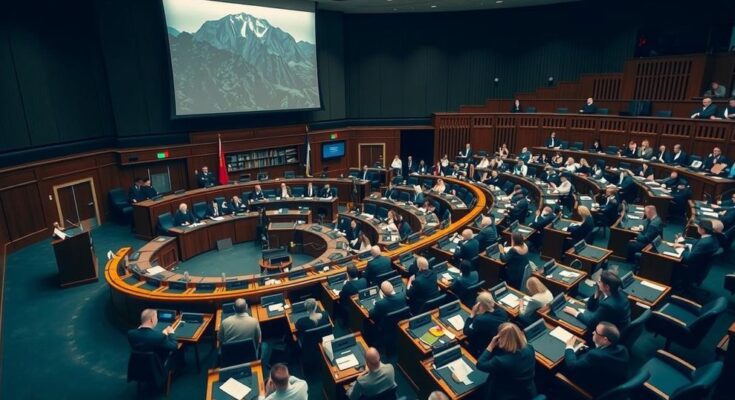A recent study published in **Nature Sustainability** reveals a significant increase in litigation aimed at ensuring climate policies are equitable, termed “just transition litigation.” Cases from coal workers and Indigenous peoples illustrate a demand for social justice in climate initiatives, highlighting the need for inclusive decision-making as countries transition to low-carbon economies.
Recent legal trends indicate a global wave of litigation questioning the equity of climate policies, as documented by a comprehensive study involving researchers from 16 universities, published in Nature Sustainability. The term “just transition litigation” has been introduced to describe these legal actions that seek to ensure that the transition to low-carbon economies is accompanied by social justice. Cases involve a diverse array of plaintiffs, including coal workers and Indigenous communities, contesting government actions that they believe infringe upon their rights or omit their voices in policy discussions. The research, which began in 2020, reveals a significant uptick in these cases that diverge from traditional climate litigation aimed at holding entities accountable for emissions failures. For instance, in Chile, union workers successfully sued the government for lack of consultation in coal plant phase-out discussions, with the Supreme Court advocating for just transition strategies. Similarly, the Sami people in Norway contested the legality of wind farm licenses due to cultural violations, while Indigenous groups in Colombia asserted their right to self-determination against anti-deforestation efforts on their ancestral lands. Just transition litigation highlights the necessity for climate action to be inclusive and socially equitable, particularly for marginalized groups that are often overlooked in environmental decision-making processes. As nations increasingly adopt policies aimed at reducing carbon footprints, the resulting socio-economic impacts must be considered. The insights derived from the grievances of affected communities underline the importance of addressing social justice in climate strategies and promoting fairness over strict emissions reductions.
The discourse surrounding climate change increasingly emphasizes the importance of equity and justice in environmental policies. As regions worldwide accelerate their transitions to low-carbon economies, legal actions are emerging from communities that feel marginalized or adversely affected by these changes. These lawsuits extend beyond traditional climate litigation, which typically focuses on accountability for emissions. Instead, they concentrate on securing a fair policy landscape that acknowledges the rights and voices of all stakeholders, particularly those who are vulnerable or underrepresented in legislative discussions.
The study underscores a critical evolution in climate justice advocacy, illuminating the urgent need for environmental policies that prioritize equitable treatment for all communities impacted by climate initiatives. It emphasizes that as societies move toward greener economies, they must adopt inclusive decision-making processes that respect individual rights and address the complexities of social justice. Ultimately, addressing these grievances can foster broader support for climate action and establish a stronger foundation for a sustainable future.
Original Source: theconversation.com




